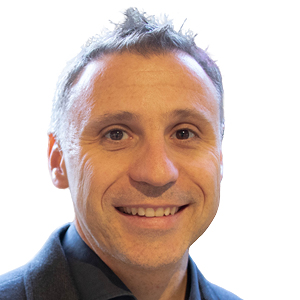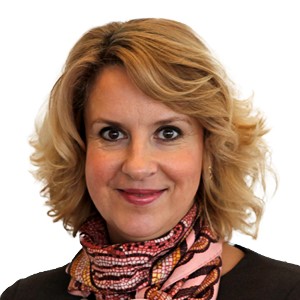The people agenda remains hugely challenging for senior leaders whether they’re based in Singapore, Mumbai, New York or London. There are shades of grey around remuneration, retention and how to create a culture of high performance in a hybrid working environment.
At Criticaleye’s virtual Human Resources Director (HRD) Forum, held in association with Accenture and Workday, the conversation was centred on motivation and purpose at a time when organisations across many sectors are bruised and struggling. At the opening, attendees were asked to use one word that best describes the resilience of their workforce. The overwhelming responses included ‘fragile', ‘challenged’ and ‘tired’. Of course, there were positives answers too, such as ‘empowered’ and ‘motivated’, but it’s evident there is plenty of work to be done to engage with employees and improve culture at a time when the future is far from straightforward.
Jamie Wilson, Managing Director at Criticaleye, commented: “There is a huge amount of attention on optics and reputation in what is a difficult landscape. This means that your people and leadership are under greater scrutiny and it’s both external and internal. It’s creating significant pressure and therefore consistency, especially around the people agenda, is going to be vital.”
As people start to feel the squeeze of inflation and higher interest rates, it’s inevitable that executive pay and compensation are going to be looked at more closely. So, any inconsistencies and glaring inequalities around remuneration have the potential to be inflammatory.
Julia Ross, Director of People and Sustainability at Tullow Oil, said: “There is going to be a real focus on credible leadership and being authentic. The Board and executive need to be fully joined-up and the remuneration policy needs to incentivise management and align them with shareholders; this is crucial as businesses will continue to be under considerable scrutiny in the current environment. The Remuneration Chair needs to be 100 percent confident in the policy – it will be a time, I suspect, for longer term incentive structures.”
It's an example of how a top team mustn’t shy away from difficult conversations. Julia went on to explain that an effective HRD will understand their role in facilitating some of this dialogue across the senior leadership. “If you’re going to build strong relationships in the top team, then you really must have the ability to listen,” she said. “It’s up to me to try to understand what each of the leaders in the top team are trying to achieve and what it is they need from me.
“As a part of this, it’s absolutely essential that I understand the strategy and the vision of the company. I then need to ensure that the senior management and the Board are aligned and part of that means being clear on the mission, values and the purpose of the business.”
Francesca Ecsery, a NED at Air France and a Board Mentor at Criticaleye, emphasised that she places huge value on the insights and input of the HRD as they are “the person who has their finger on the ‘people pulse’ in a company”. She explained: “People and talent are increasingly deemed as key to every business and the pandemic made that all the more obvious. So, to have the right conversations, and I'm talking here as a Board Director and as a Chair of Remuneration, I like to work very closely and collaboratively with the HRD.
“I would not want to suggest anything in isolation from the HRD as they are my sounding board. They have to be in the room, in my opinion, and consulted upstream during all strategic discussions and decisions because they will have to cascade all that information down and into the organisation.”
Let’s Engage
At the Forum, the panellists agreed that companies need to understand how to adapt and demonstrate greater flexibility to meet the shifting expectations of employees. It’s a conversation that was happening long before the pandemic and goes way beyond hybrid working.
Gastón Carrión, Managing Director for APAC Talent and Organisation Lead at Accenture, commented: “Technology is disrupting the workforce and the way we think about work. We are asking people to execute more complex tasks at faster speeds. So, there are significant considerations around human and machine collaboration for day-to-day operations, as well as the upskilling of the workforce to operate in a digital world.”
This is very much an ongoing journey for companies. “A challenge exists in how to upskill people so they can execute on these new technologies and ways of working,” he added. “If we are to embed agile frameworks, then we have to train leaders and the workforce to be able to operate in these new models.”
The pandemic evidently accelerated changes already in place and exposed weaknesses in the structures and skills mix of those companies that have been slower to react. This was reinforced in a poll taken at the Forum that showed an emphatic 86 percent of attendees stating that the turbulence of the past two years has changed the way they approach their talent strategy.
According to Gastón, there is now also a greater focus on developing a better understanding of value creation. He said: “There is a huge focus on productivity. Many boards and CEOs are asking about how to measure the productivity of the workforce. At the end of the day, there is a cost requirement that we need to hit in order to continue to deliver our revenue projections and to execute on what we have told the market we are going to deliver.
“So, how do we ensure that we have the right level of insights around performance and productivity of the workforce? And what interventions are we putting in place to make people thrive at work?”
The quality and integrity of those “interventions” will be essential. It’s up to executives to create an inclusive work environment where people feel they belong. At the same time, have a clear understanding of performance and productivity in a tougher commercial landscape. As Jamie puts it: “Trust in leadership is the key to success... It’s always needed if a senior executive team or Board is to perform at a high level, but I think they’re going to be more exposed in this environment of increasing complexity and uncertainty.”
Marc Barber, Director of Content, Criticaleye
Our Human Resources Director Retreat 2023 is being held on 2nd / 3rd March. For more information, click here



